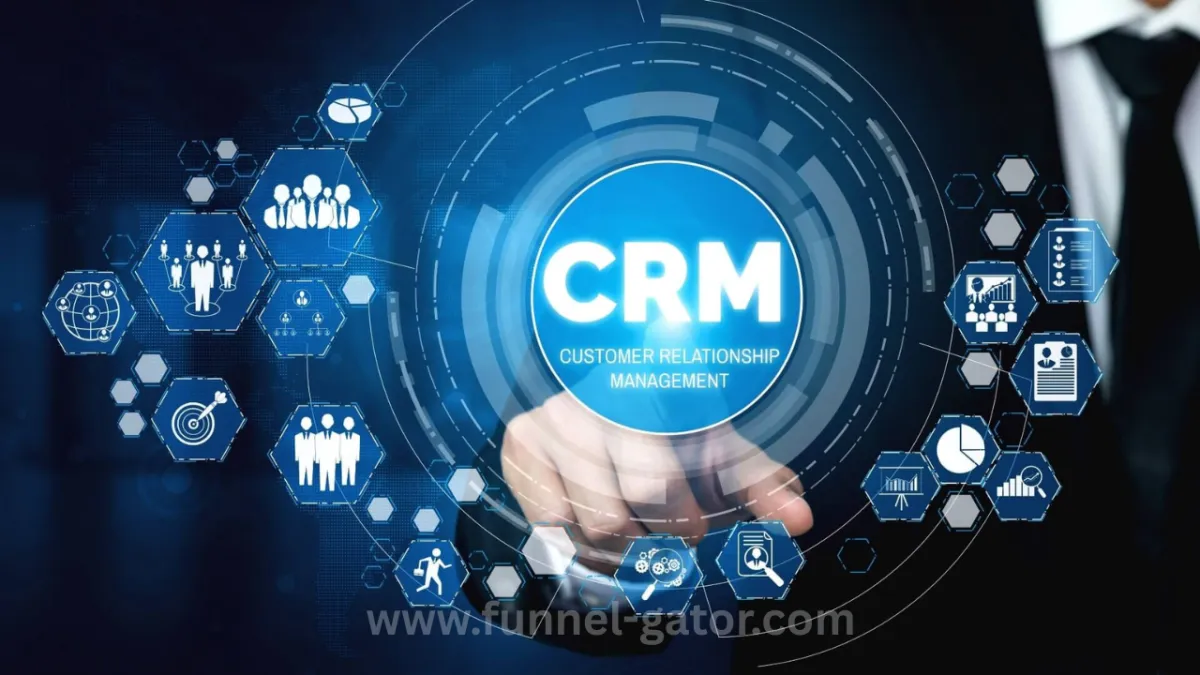
What is CRM Software?
In today’s business world, where customers are smarter, competition is tougher, and attention spans are shorter, building strong customer relationships is more important than ever. That’s where CRM software comes in.
What Does CRM Software Mean?
CRM stands for Customer Relationship Management. In simple terms, CRM software is a tool that helps businesses manage interactions with customers and leads. Think of it as your digital assistant that remembers every conversation, tracks every sale, and keeps your team organized and focused.
Imagine this: You run a small clothing store. One of your regular customers, Sarah, loves floral prints. A few weeks ago, she mentioned she’s looking for a light summer jacket. With CRM software, you can note that down. So, when new jackets arrive, your system reminds you to follow up with Sarah. She feels remembered and valued. Boom — a sale and a loyal customer!
Why Do Businesses Use CRM Software?
Using a CRM system is like having a map when you're exploring unknown territory. It helps you see where you are, where your customer is, and how to get closer to them.
Here’s why businesses love it:
Organizes contacts in one place
Tracks sales and follow-ups
Automates repetitive tasks
Improves customer support
Increases revenue by closing more deals
Whether you’re a freelancer, startup, or an enterprise, a good CRM tool helps you stay on top of your game.
🛠️ How Does CRM Software Work?
Here’s a simple step-by-step guide to how CRM software works:
Step 1: Collect Information
You can add customer details like:
Name
Email
Phone number
Company
Past interactions
Step 2: Track Interactions
Every call, email, or meeting is recorded. You’ll always know what was discussed and what the next step is.
Step 3: Set Reminders & Tasks
CRM helps you schedule meetings, send follow-up emails, and assign tasks to team members.
Step 4: Automate Processes
You can automate actions like sending a welcome email or reminding your team to check in after 3 days.
Step 5: Analyze Performance
Get clear reports about your sales, marketing campaigns, or customer service quality.
📘 Learn more about how CRM systems work
📊 Types of CRM Software
There are 3 major types of CRM software. Let’s break them down:
1. Operational CRM
Helps automate sales, marketing, and customer support. Best for teams who want everything running like a machine.
2. Analytical CRM
Analyzes data to help you understand customer behavior. Great for businesses focused on growth strategies.
3. Collaborative CRM
Helps different departments (sales, marketing, support) work together by sharing customer information.
🧠 Check this guide to understand CRM types
💡 Real-Life Use Case
Let’s say you run a digital marketing agency. You get hundreds of leads a month. Some want SEO, others want social media help. You can’t possibly remember each one’s interest manually.
With CRM software, you tag leads by interest, set automatic follow-up emails, and get notified when a lead opens your email. Suddenly, everything feels smooth, and you're closing more deals.
🔍 Top Features to Look for in a CRM
If you're ready to invest in a CRM platform, make sure it includes these features:
Contact Management
Email Integration
Sales Tracking
Task Automation
Custom Dashboards
Mobile Access
🛒 Why You Should Invest in CRM Software Today
Here’s the thing: businesses that use CRM systems see up to 29% increase in sales, 34% improvement in customer satisfaction, and 42% better forecasting accuracy.
With such powerful benefits, why wait?
Most CRM providers offer free trials, easy setup, and customer support. So, you don’t need to be tech-savvy to get started.
🔗 Compare top CRM software options
💬 FAQs About CRM Software
1. Who needs CRM software?
Any business that deals with customers — from freelancers and startups to large corporations.
2. Is CRM only for sales teams?
No. CRM tools are used by marketing, support, and even HR teams to manage relationships and communication.
3. Is CRM software expensive?
Many CRM platforms offer free versions or affordable monthly plans, especially for small businesses.
4. Can I integrate CRM with other apps?
Yes! Most CRMs integrate with email tools, calendars, social media, and more.
5. How long does it take to set up a CRM system?
Usually, you can be up and running in a few hours. Larger setups may take longer based on data and customizations.
✅ Conclusion: CRM is Your Business Wingman
Think of CRM software as your all-in-one customer success tool. It helps you build deeper relationships, stay organized, and grow your business faster.
If you’re serious about your customers — and your profits — CRM software is not a luxury, it’s a necessity.